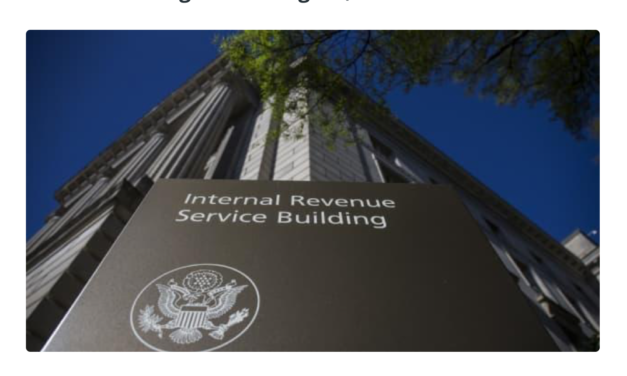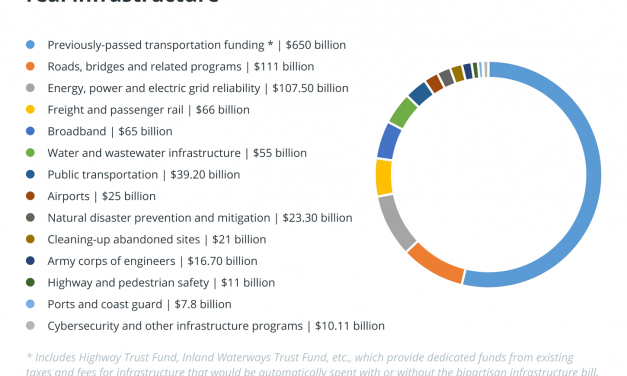Biden is hiring 87,000 new IRS agents — and they're coming for you
The Inflation Reduction Act, signed into law this month by President Joe Biden, empowers the IRS with nearly $80 billion in new funds. The world’s most powerful tax collection agency is using the money to go on a hiring spree to fuel much tougher enforcement efforts.It is widely assumed that the audits will be brutal and widespread. Taxes start with tax returns, which must be signed under penalties of perjury. The Biden administration has said that the audits on steroids are for fat cats who have escaped having to pay their fair share for too long. The administration has suggested the IRS would perform no new audits on anyone making less than $400,000 annually. Republicans tried to include that in the law, but every Senate Democrat voted against the amendment, as well as IRS audit protection for those earning less than $400,000.In other words, American taxpayers at every income level are fair game regardless of income. So buckle up, and think about whether your taxes — and records — are vulnerable. How would they look under a microscope? Tax returns must be signed under penalties of perjury. What’s more, if you try to change that language, the IRS says it doesn’t count as a tax return — which means your statute of limitations on an audit never begins. You can be audited forever. Related: US govt delays enforcement of crypto broker reporting requirementsSpeaking of perjury, the IRS asks on every individual tax return, “At any time during 2021, did you receive, sell, exchange, or otherwise dispose of any financial interest in any virtual currency?” The 2022 version of that question is even more intrusive as we’ll see. The IRS says that all taxpayers filing Form 1040, Form 1040-SR or Form 1040-NR must check one box answering either “Yes” or “No” to the virtual currency question. The question must be answered by all taxpayers, not just those who engaged in a virtual currency transaction in 2021.The IRS agents hired to audit billionaires are authorized to use deadly force on you or even your dog based on their “opinion”. pic.twitter.com/autqppvql8— Wall Street Silver (@WallStreetSilv) August 13, 2022In the tax world, a simple yes or no question can be a surprisingly big deal — if you answer wrong. But can you check “No?” Taxpayers who merely owned virtual currency at any time in 2021 can check the “No” box when they have not engaged in any transactions involving virtual currency during the year or limited their activities to: Holding virtual currency in their wallet or account;Transferring virtual currency between their wallets or accounts; Purchasing virtual currency using real currency, including purchases using real currency on electronic platforms such as PayPal and Venmo; and Engaging in a combination of holding, transferring or purchasing virtual currency as described above.But many people must check “Yes.” Just think about these everyday transactions in crypto, all of which would require checking the “Yes” box:The receipt of virtual currency as payment for goods or services provided;The receipt or transfer of virtual currency for free (without providing any consideration) that does not qualify as a bona fide gift;The receipt of new virtual currency as a result of mining and staking activities;The receipt of virtual currency as a result of a hard fork;An exchange of virtual currency for property, goods or services;An exchange/trade of virtual currency for another virtual currency;A sale of virtual currency; andAny other disposition of a financial interest in virtual currency.Just answering yes or no isn’t hard, but one thing it’s meant to do is tip you off that you have a taxable event, which usually means paying some tax. So you also have to report the gain or income. As if the crypto community wasn’t nervous enough, get ready for more since the tax stakes are going up again. For 2022 tax returns, the IRS has modified the crypto question asked on IRS Form 1040, the tax form used for individuals. A draft of the 2022 IRS Form 1040 asks: In case you thought the IRS needed 87,000 more agents to help you with your tax returns and audit billionaires, watch this: Highlights from the IRS Adrian recruiting project. Link to original video: https://t.co/jgCluHuvvM pic.twitter.com/QXlHmDBR6D— Thomas Massie (@RepThomasMassie) August 17, 2022
“At any time during 2022, did you: (a) receive (as a reward, award, or compensation); or (b) sell, exchange, gift, or otherwise dispose of a digital asset (or a financial interest in a digital asset)?”That casts the net wider than did the prior version. The IRS gift and estate tax people are generally distinct from IRS income tax personnel. But the expansion of the crypto tax question may herald more to come, more crypto audits, more IRS scrutiny on crypto and crypto taxpayers and more money being poured into IRS compliance generally. The so-called Inflation Reduction Act is supposed to fund the hiring of 87,000 new IRS agents and add nearly $79 billion to the IRS, a vast $45 billion of which is being directed solely into IRS “enforcement.”Related: How to navigate cryptocurrency tax implications amidst the CPA shortageCrypto is one of the IRS’s big targets. The new law says the IRS will pursue “digital asset monitoring and compliance activities,” apart from general tax enforcement. What can the IRS do with $80 billion of taxpayer money? The new law says the IRS is supposed to use the money in these ways: Taxpayer services: $3,181,500,000;Enforcement: $45,637,400,000;Operations support: $25,326,400,000;Business systems modernization: $4,750,700,000;Task force to design free, direct e-file system: $15,000,000;Treasury Inspector General for Tax Administration: $403,000,000;Treasury Office of Tax Policy: $104,533,803;Tax Court: $153,000,000; andTreasury Departmental offices for oversight and implementation support to help the IRS implement the IRA: $50,000,000.Enforcement is the biggest line item, and Congress wants results too. Congress has already projected that adding IRS enforcement dollars is going to pay off. They project the new funding will add a whopping $124 billion more in increased collections over 10 years.The bill is vague on how the IRS can spend $45 billion on “enforcement,” though ominously, it does mention legal and litigation support, and enforcement of criminal statutes regarding tax law violations. The bill also specifies “digital asset monitoring and compliance activities” and investigative technology for criminal investigations as items on which the IRS should spend the money. Any way you slice it, you can expect more IRS attention on crypto, more scrutiny on tax reporting, and above all, more audits.The views, thoughts, and opinions expressed here are the author’s alone and do not necessarily reflect or represent the views and opinions of Cointelegraph.Robert W. Wood is a tax attorney representing clients worldwide from his offices at Wood LLP in San Francisco. He handles a broad range of tax planning and tax controversies and has served as an expert witness on cases including tax matters in civil cases, class actions, and disputes over independent contractor or employee classifications. He formerly served as an instructor at the University of California’s Hastings College of the Law.
Čítaj viac




